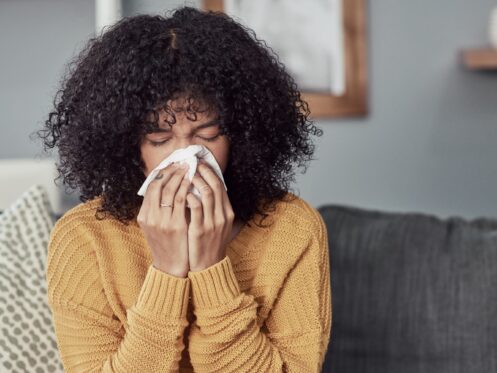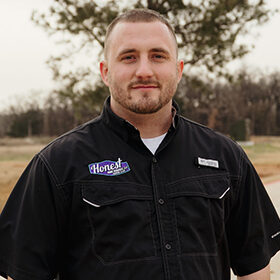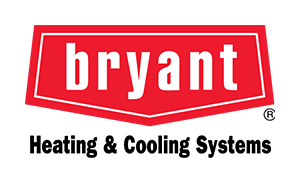Do you struggle with allergies or asthma or are concerned about germs and pollutants circulating in the air around your home? Numerous studies have shown that indoor air is almost always much worse and more polluted than outdoor air, making indoor air quality (IAQ) something everyone should be concerned about. One of the best options for overcoming the majority of air quality issues is installing a HEPA air filtration system. Here, we’ll explain all you need to know about this type of system.
What Is a HEPA Filter?
HEPA stands for High Efficiency Particulate Air, which is the name given to filters that fall into the highest efficiency category. All air filters are tested and then receive a rating based on how efficient they are. Specifically, the rating is based on the percentage of large and small particles the filter effectively traps and removes from the air flowing through it.
Your standard HVAC filters do a decent job at trapping and removing dust and other large particles like hair and lint, limiting the amount of these particles that get sucked into the HVAC system. However, they have little to no effect in removing smaller particles like germs, pet dander, pollen, chemical fumes, etc., from the air.
Air filters with a higher MERV (Minimum Efficiency Reporting Value) rating are more effective. Nonetheless, they are only effective at trapping particles down to a certain size, meaning a fairly substantial percentage of much smaller particles still flow through the filter unimpeded.
HEPA filters effectively trap over 99% of things like pollen, mold spores, dust, pet dander and all other particles equal to or larger than 0.3 microns in size. Particles that are around 0.3 microns are among the greatest concerns in terms of air quality and health, as they can easily penetrate through your lungs and get into your bloodstream when you breathe them in.
The fact that HEPA filters are so efficient and work so well is why they’re used in places like operating rooms and laboratories that require an extremely sterile environment. It’s also why they’re the best choice for improving the air quality in your home. This helps to ensure people with allergies, asthma and other respiratory issues can always breathe much more easily.
One of the only things that HEPA filters really can’t do is eliminate chemical gases from the air, but this is true about any type of physical filter. HEPA filters also don’t eliminate odors from the air, as this requires something like an activated-carbon air filter. Nonetheless, there are some filtration systems that use HEPA filters alongside other methods to tackle odors and the majority of types of indoor air pollution.
How a Whole-Home HEPA Filtration System Works
Standard HVAC air filters are just mounted directly in the return ductwork to filter the air before it gets drawn into the main part of the system. A HEPA filtration system instead has to be installed onto the ductwork in a bypass. That means the system sits next to the main return duct and is connected using two pieces of flexible ductwork. The reason that you can’t install a HEPA filter directly inside your ductwork is that it is so efficient that it would greatly restrict the airflow in your HVAC system. This leads to major issues in terms of energy efficiency and heating/cooling effectiveness.
A whole-home HEPA filtration system has a built-in fan that automatically turns on and off when the HVAC system does. When the fan is running, it continually pulls air in from the duct and forces it through the filter. The filtered air then gets pushed back out into the duct before finally getting blown throughout the house. That results in a major reduction in the amount of pollutants, allergens and other contaminants that get spread around by the HVAC system.
One great thing about a HEPA filtration system is that you can still use it to clean and purify the air in your home even when you don’t need to have your heating or air conditioning running. All you have to do is switch your thermostat so that the HVAC blower or fan runs independently. In some cases, you even have the option to set everything on a timer so that this happens automatically.
Is a HEPA Filtration System Worth It?
No indoor air quality solution is perfect or will meet every household’s specific needs. The main thing to note about a HEPA filtration system is that you’ll need to have it serviced and change the filter regularly to keep it functioning as well as it should. Not changing the filter often enough is an especially big concern, as it can lead to poor HVAC performance and shorten the life of the filtration system.
Replacement HEPA filters also tend to be quite a bit more expensive than other types of filters. As such, it’s important to think carefully about whether a HEPA system is the right option or if you’re better off going with one of the other IAQ solutions.
Installing a whole-home HEPA filtration system is absolutely worth it if you or anyone in your household suffers from severe allergies, has any other respiratory issues or is immunocompromised. Otherwise, a HEPA filter may be slightly overkill, as there are also other options that will sufficiently meet your indoor air quality needs.
One alternative option you may want to consider is an electronic air cleaner, which uses static electricity to remove particles and filter the air flowing the air the HVAC system circulates. While electronic air cleaners can’t provide the same level of filtration as you get with a HEPA filter, they are still an effective option for overcoming most air quality issues.
They also typically cost less overall since you don’t need to buy replacement filters. Instead, all you need to do is clean the plates in the unit every few months once they start getting coated with dust and debris.
UV light air purifiers are another option that’s worth considering if you’re concerned about germs circulating around your house. All organisms experience some amount of DNA damage when exposed to UV-C light. That’s why installing a UV light unit in your ductwork is a great way to keep everyone healthier. Therefore, the UV rays will continually destroy any airborne germs as they pass through the light. UV lights also destroy mold spores in the air, making them a great choice for anyone with mold allergies or sensitivities.
Contact Us Today
Some of the other options you have for improving the air quality in your home and creating a more comfortable environment include whole-home humidifiers and dehumidifiers, ventilation systems and air duct cleaning. No matter what your indoor air quality needs are, Honest Home Services LLC is ready to help. We’re a family-owned company with years of experience helping homeowners in Flower Mound meet all of their indoor comfort needs.
Our professional indoor air quality testing services can help you quickly find out what issues you’re facing and what solutions are best for your home. We install the full range of IAQ equipment and systems and won’t rest until your needs are met and you’re 100% satisfied. To schedule an air quality test or learn more about the IAQ solutions we offer, contact us today.



